This article was originally published on thebodedit.com
Exploring the dark, bizarre and dreamlike world of photographer Roger Ballen. In an exclusive interview with one of the most original and influential photographic artists of the 20th century, we talk fantasy and the magical alchemy of the human imagination.
Since the 1970s, Ballen’s seminal series of stark black and white photos have documented the margins of society and transgressed the limits of the human imagination. Achieving international acclaim for his hauntingly disturbing and deeply evocative visions of life beyond society’s fringes, Ballen has continuously engaged with a vision that draws on our natural discomfort with the shadows of our imagination. Drawing deep from Afrikaner culture, the creative mind has lent his vision to South African Zef hip-hop duo Die Antwoord for the band’s iconic video “ I Fink U Freeky”. Now at nearly 70, Ballen reflects on life, mayhem and the language of the inner mind.
The Bod Edit: How do you feel that your studies in Psychology and Geology influenced your work? Particularly your early work when you were starting to develop your themes and projects?
Roger Ballen: I have a Bachelor’s degree in Psychology, I have a Doctorate degree in Geology and the Kingston University in London just gave me an honorary Doctorate degree in Art & Design last month.
With Psychology I was interested in the psyche and Psychology before I studied it, so that was an orientation of mine and I guess it was ingrained into my mindset, and I guess that expanded that orientation.
I guess after studying something like Psychology, I have a better understanding of the way people’s minds work from a scientific and analytical way.
But you know that’s only the beginning, I studied Psychology a few years at Berkeley, that’s just one notch in my career, you know, one part of the puzzle, which has some relevance to what I do later but I wouldn’t say it is the most key influence.
What do you believe is your most important influence?
The key influence is my state of mind, the molecules, the patterns and cells that make up Roger Ballen’s brain. And how they come to bind together to create who I am, it’s dynamic.
Contemporary life likes to say that everything’s a part of your experience in your short life on this planet, but a lot has to do with the subconscious mind, biology and genetics and all these things that you can’t put your finger on, you know? But who knows? Who really knows about most of these things?
Your subjects are often described as at the fringes of society, or among the extreme, what is it that draws you to these individuals?
I’m not judging people the way other people are judging people so I find something honest about the person, something that’s, I don’t know, something that they’ve actually experienced in life, some would say in a deeper way. I hate to use words like ‘profound’, but a profound and deeper experience of life. Not people who are watching television or are only reading books, you know they experience life. They get out there and their personality, it comes through in some way that affects me, and I feel like they’re rooted in life. I guess that would be a good way of putting it, they’re rooted in life.
I tend to like people who, they don’t need an education, they don’t need to travel, they just represent life, like an animal does, like a tree does, like a bird does. When you’re rooted in life, you don’t have to analyse what a bird is thinking about, what a tree is about, it’s rooted, it’s there and I like those type of people. I don’t feel like I need to ask a lot of questions because the people I work with I don’t ask a lot of questions to.
A lot of your work is very vulnerable or intimate in ways do you think that it’s this perspective that allows you to create such a relationship of trust?
I’ve known some of these people 25 years already, they’re friends of mine and we work together. I couldn’t have done what I’ve done over the years if there wasn’t trust, or a positive relationship between me and them and them and me, it’s a two-way street. They benefit and I benefit, if I only benefit then I probably would’ve been murdered in these places. So you know, it has to be a two-way street. I don’t want it to be anything more than that, it has to be friendly, I have to help, they need help, whether it’s food, books, whether it’s money to go to hospital or shoes or something, I’m happy to help.
What do you want people to experience from your work? What do you want to provoke and make people think about?
I want my work within microseconds to embed itself in their subconscious mind, and make people question, make them come to terms with their state of mind and identity their own (state of mind). Expose what they bury, what they haven’t buried.
I think my work should challenge the state of being, that’s what I would hope my work does, and the more people find the work disturbing, the more it’s challenging their state of being, the more it scares them.
If it really does scare them, it means they’re probably living in some reasonable sub-state of deep repression I guess.
Everybody’s different, it’s hard to necessarily measure what I’m saying, that’s the problem for most of the world. Most of the world is living in a state of deep repression, I mean I’m not the first one to say that. The pictures can open up the personality of an individual to themselves, be a mirror to themselves, then hopefully they can have a more psychologically stable life, that might contribute to a more stable world in some minor, minor way.
You’ve described your work as a revelation, rather than a documentary…
My work isn’t documentary at all, it’s only documentary in that it shows the evolution of my photographic vision. It documents the evolution of my photographic vision. The reason I call my work Ballenesque is because it’s a vision of a world singular to me, I created a particular way of using the camera that is identifiable, I’m not trying to brag and I’m not trying to say it’s great or poor or anything but it is a reasonably singular vision of the way photography can transform the world.
I just work, I’m not there to try and find words for my work. I’ve commonly stated that if I can define the work in words, it’s probably a bad photograph. 99% of the photographs you see in the world can be defined in words; ‘happy birthday’, ‘poverty’, ‘ecological disaster’, ‘political turmoil’. The relationship to my pictures, they’re a mirror to the inner mind. If that makes sense?
The subjects are not about South Africa, and they’re not about poor white people and crazy people. They reflect something about you, this psychological being. So if you look at the people, there’s a lot of chaos around them, they’re also absurd, these pictures reflect things that most people are trying to deal with, and having a hard time trying to come to resolution about. So that’s why they affect people because they actually say something about this subconscious state of mind, that they kind of come to terms with their own condition, that’s why the pictures stay in their mind.
As an artist, what do you feel your role is?
It’s easy to say that my role is to do this or that. I can say a million things about my role. I have to go out and do things that hopefully have impact but I can’t guarantee that. It doesn’t matter what I think my role is, I have to be able to implement that role.
With technology giving everyone the ability to take photos and document so much, what do you think distinguishes a true artist and visionary?
I really don’t know anymore about a true artist, I have to tell you the truth. There’s so many people calling them artists these days, that it’s like, the word doesn’t mean anything to me anymore, it’s just another word out there.
So being a true artist, what do you mean by a true artist? Does it mean that you can be true to yourself but you may not be saying very much. What do you mean about the role of an artist? Is somebody calling themselves an artist. Is that artist more of a better artist, a more valid artist than someone sitting somewhere in the highlands of Scotland, who’s never been to a museum and doesn’t even know what the word means? We have to be very careful with these words now, because when we stop looking in deeper ways we find that a lot of these concepts are influenced by media and economic interest and they blend into nothingness.
It’s difficult. I have my own opinions, so you ask me what is a true artist, a true artist is someone who follows their own.. The lead of their interior mind, they follow their feelings, they follow their emotions, they don’t follow necessarily what sells in an expensive gallery, even though they’d make more money.
What project would you like to pursue next?
I’m making coloured pictures for the first time in my career so for the last year or so, I’ve moved from black and white to colour photography. I’ve been absolutely amazed, to be honest with you, by how good the pictures are. So I made a big step into another zone and I never thought I would ever it just happened by chance. And right now I’m quite inspired by my own colour pictures which I never thought I would be, I never had any interest in colour before. Just by chance Leica camera gave me one of their cameras and I started taking coloured pictures. I was really quite astounded by how good the pictures started to turn out so I have started to build on that and I have a whole series made already in colour.
The other thing I’m doing on a regular basis is creating, making installations. I’m building rooms and houses and they feel like.. they feel like the same place that the pictures came out of, but as physical spaces.
I’m creating so-called 3D Ballenesque spaces that are openly linked in some aesthetic way to my photos and videos.
I’m also making videos, and next month, I’m the creative director for Die Antwoord in a feature film for them next month. So I’m involved in lots of different things, and I’m taking pictures on a regular basis, just continuing with my career at aged 68. I feel very privileged, I’m so involved with what I’m doing and learning everyday more about what I’m doing and what I am inspired by what I’m doing. If you’re not inspired by what you’re doing then you won’t be able to produce very good work. People are always looking for things to be inspired by, but you really have to be inspired by your own work, if you’re not inspired by your own work then you’re really not a true artist.
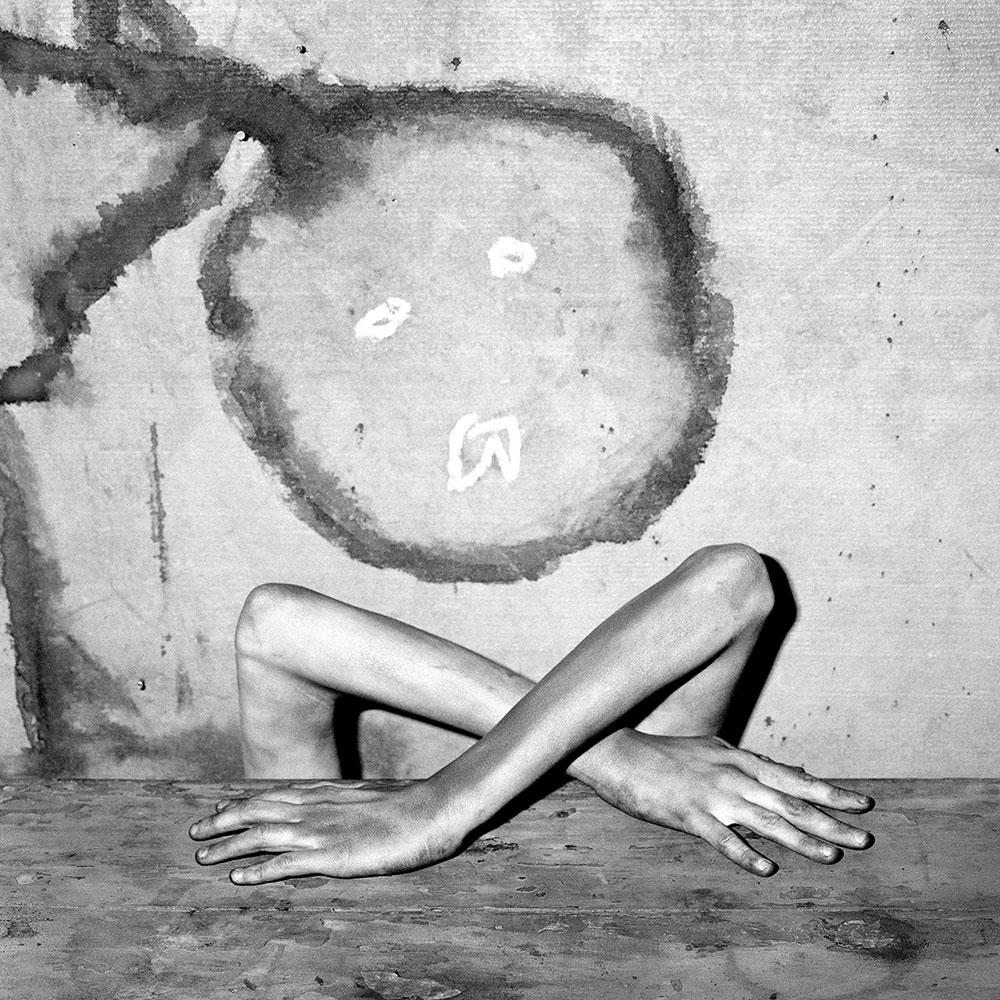
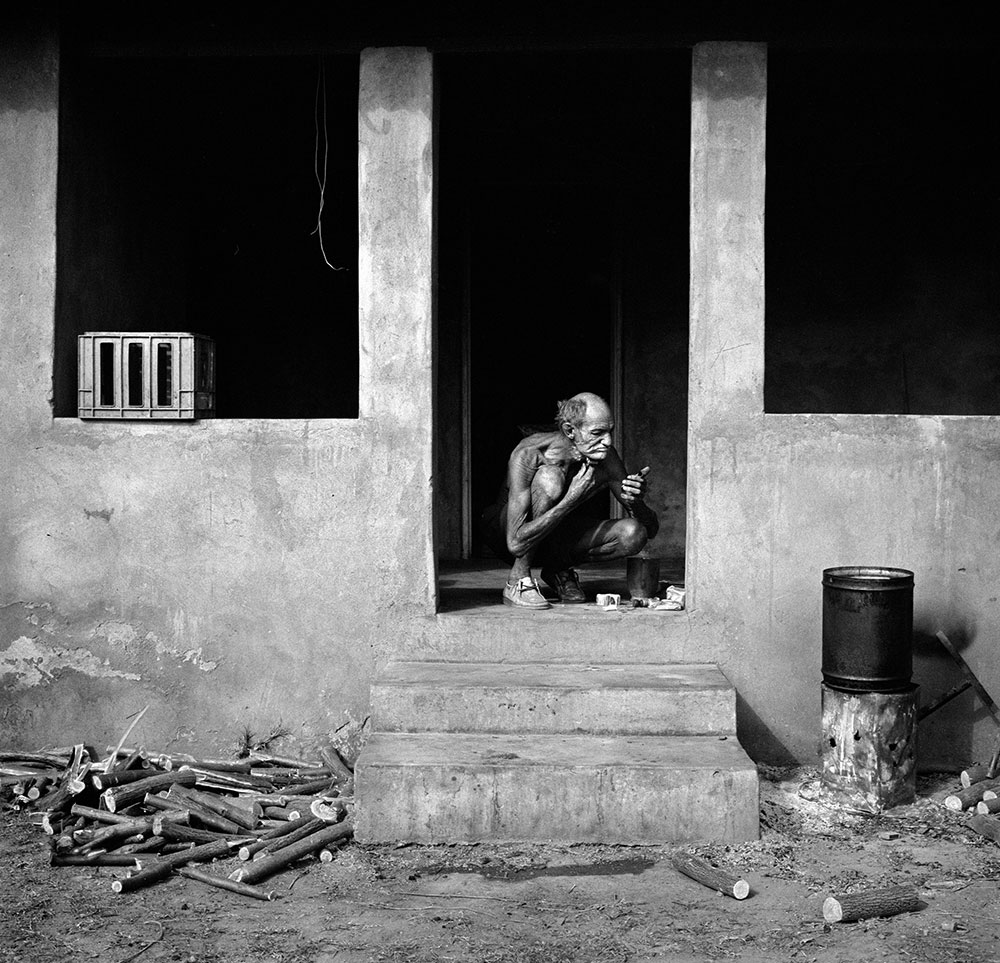
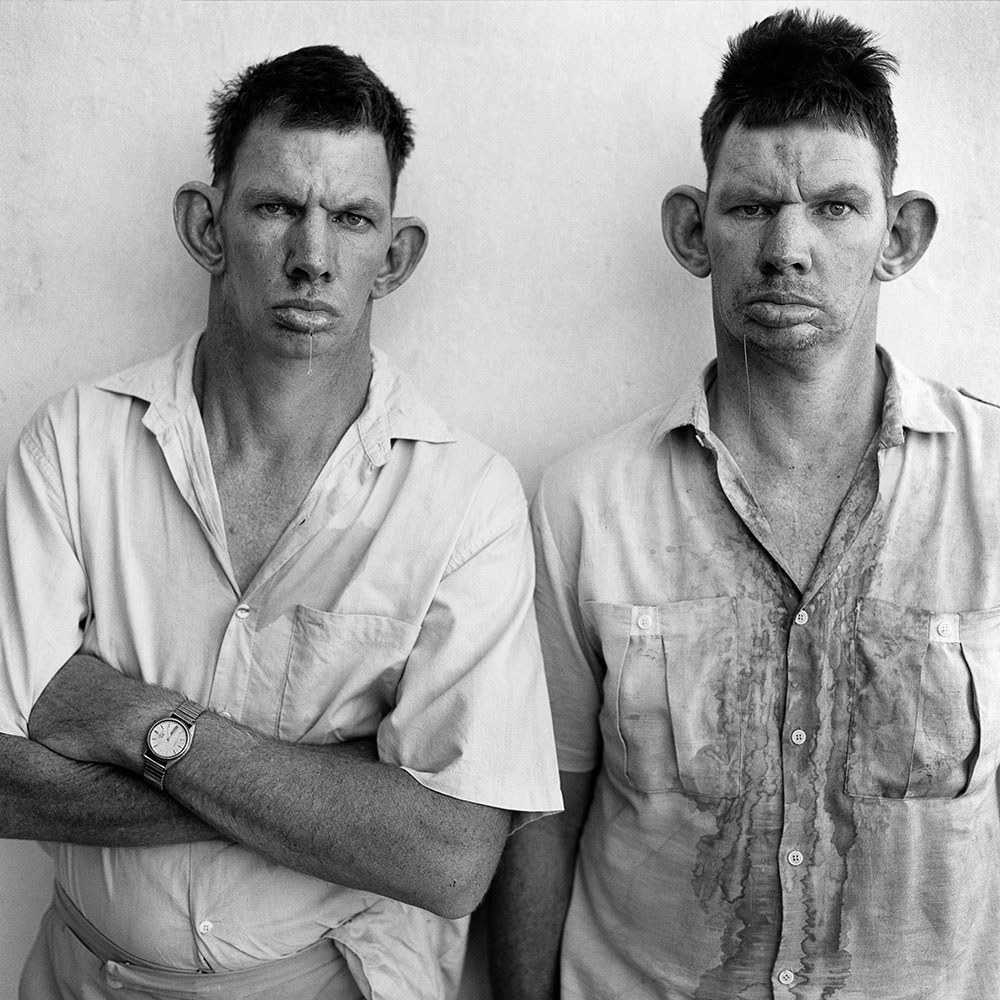
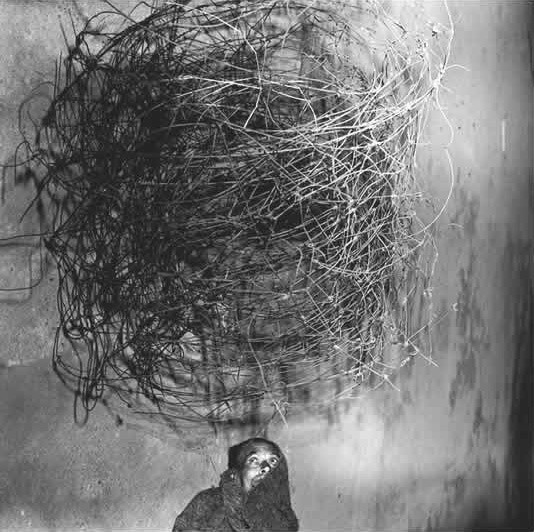
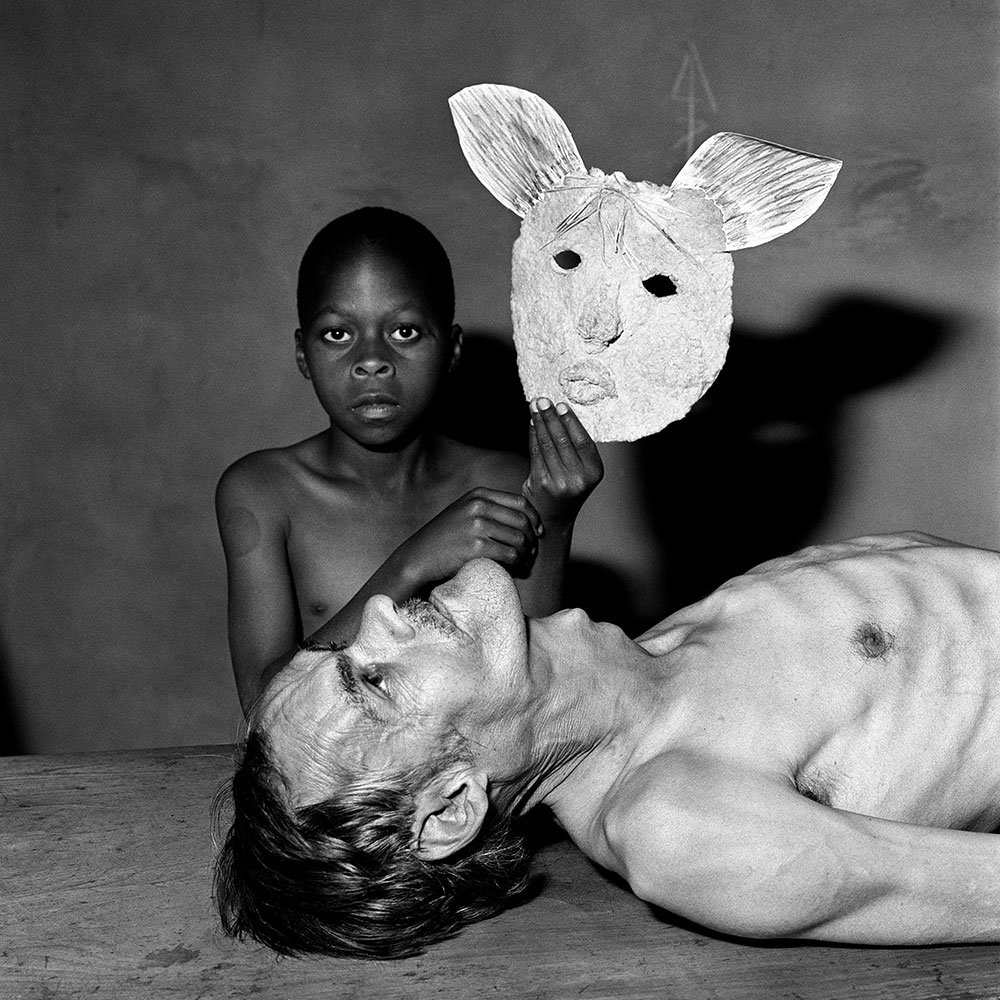


Comments are closed.